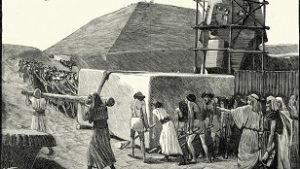This is mark Joseph “young” blog entry #417, on the subject of Is the Beginning of the Exodus Account Implausible?.
This is a continuation of a response to the article Ten Reasons Why the Bible’s Story of the Exodus Is Not True, requested by a Facebook contact. The introductory article was #415: Can the Exodus Story Be True?, and it was followed by an answer to the first objection, #416: Does Archaeological Silence Disprove the Exodus?
The second objection in simple form reads “An implausible start”. That is expanded to “In one day, over two million people, in Egypt, a very large country with no telephones or radios, were all contacted and instructed….” The article considers this implausible.

First, let’s be clear that the number “two million” is an estimate. It is not necessarily an inaccurate estimate, but it is based on the statement that there were six hundred thousand men, extrapolating women and children from there. However, to reach the estimated one-point-four million women and children one need only reach the male heads of their households.
Second, the perceived problem is largely based on our modern lives, overlaying twenty-first century concepts over a very different ancient world. Were we to be faced with such a communications problem, we would of course solve it through mass media and modern communications. Without those, we would not know what to do. However, despite the size of Egypt, the account tells us that all the Israelites, and only the Israelites, lived in a section of Egypt called Goshen. Town cryers were in use for millennia prior to newspapers. Beyond that, because we do not have them today we do not understand the kinds of social networks that existed before the modern communications age. Israel was divided into tribes, and the tribes into families. The tribes had tribal elders, the families had family heads.
In the mid-twentieth century many local organizations had what were called telephone trees. In essence, when the organization had to get a message to its members in a hurry, the person at the top called perhaps two to four people, who had lists of two to four people that each had two to four people, in an expanding chain which ultimately reached everyone. It would have taken a bit longer, but not really that long for a message delivered to the tribal elders to be passed to the family heads and down the line to everyone in the tribe. Further, as they were apparently employed Egyptian workers (we call them slaves) they undoubtedly had systems in place for delivering such messages so they would know what they had to do.
Certainly getting a message to six hundred thousand men within a few hours would be challenging, but they knew how to do it, because it was the way their society operated.